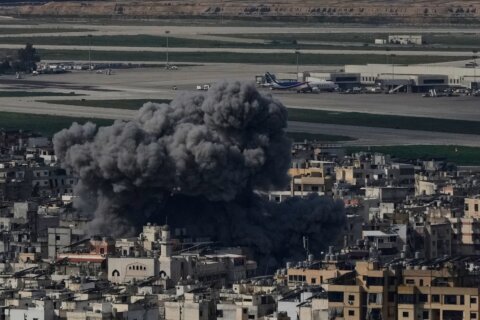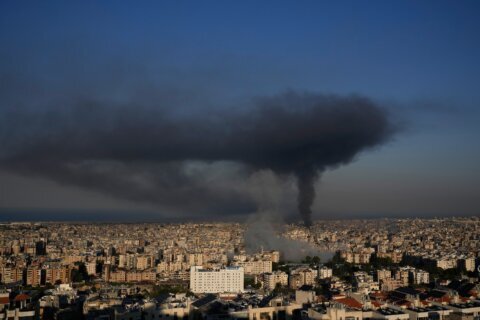
DUBAI, United Arab Emirates (AP) — Iran is acknowledging for the first time it has an open case before its Revolutionary Court over the 2007 disappearance of a former FBI agent on an unauthorized CIA mission to the country, renewing questions over what happened to him.
In a filing to the United Nations, Iran said the case over Robert Levinson was “on going,” without elaborating.
It wasn’t immediately clear how long the case had been open, nor the circumstances by which it started. However, it comes amid a renewed push to find him with an offer of $20 million for information from the Trump administration amid heightened tensions between Iran and the U.S. over Tehran’s collapsing nuclear deal with world powers. That’s in addition to $5 million earlier offered by the FBI.
The Associated Press on Saturday obtained the text of Iran’s filing to the U.N.’s Working Group on Enforced or Involuntary Disappearances.
“According to the last statement of Tehran’s Justice Department, Mr. Robert Alan Levinson has an on going case in the Public Prosecution and Revolutionary Court of Tehran,” the filing said.
It did not elaborate. Iran’s Revolutionary Court typically handles espionage cases and others involving smuggling, blasphemy and attempts to overthrow its Islamic government. Westerners and Iranian dual nationals with ties to the West often find themselves tried and convicted in closed-door trials in these courts, only later to be used as bargaining chips in negotiations.
Iran’s mission to the U.N. did not immediately respond to a request for comment, and its state media has not acknowledged the case. The U.S. State Department did not respond to a request for comment about Iran’s acknowledgement.
The Washington Post first reported on the ongoing case.
Levinson disappeared from Iran’s Kish Island on March 9, 2007. For years, U.S. officials would only say that Levinson, a meticulous FBI investigator credited with busting Russian and Italian mobsters, was working for a private firm on his trip.
In December 2013, the AP revealed Levinson in fact had been on a mission for CIA analysts who had no authority to run spy operations. Levinson’s family had received a $2.5 million annuity from the CIA in order to stop a lawsuit revealing details of his work, while the agency forced out three veteran analysts and disciplined seven others.
Since his disappearance, the only photos and video of Levinson emerged in 2010 and 2011. He appeared gaunt and bearded with long hair, and was wearing an orange jumpsuit similar to those worn by detainees at the U.S. prison at Guantanamo Bay.
The video, with a Pashtun wedding song popular in Afghanistan playing in the background, showed Levinson complaining of poor health.
Rumors about him have circulated for years, with one account claiming he was locked up in a Tehran prison run by Iran’s paramilitary Revolutionary Guard and U.S. officials suggesting he may not be in Iran at all. Dawud Salahuddin, an American fugitive living in Iran who is wanted for the assassination of a former Iranian diplomat in Maryland in 1980, is the last known person to have seen Levinson before his disappearance. Iran has offered a series of contradictory statements about Levinson in the time since. It asked the U.N. group to close its investigation into Levinson in February, saying “no proof has been presented by the claimant in this case to prove the presence of the aforesaid in Iran’s detention centres.”
Copyright © 2026 The Associated Press. All rights reserved. This material may not be published, broadcast, written or redistributed.







